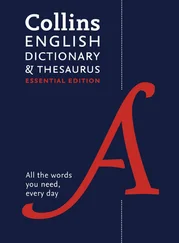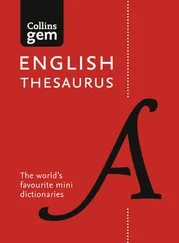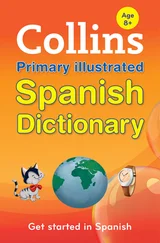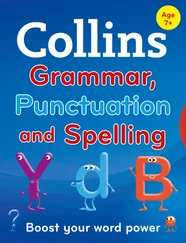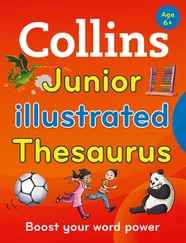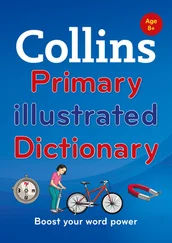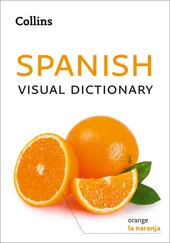ANTONYMS: different or unlike
all right (1) ADJECTIVE
If something is all right, it is satisfactory, but not especially good.
acceptable
Your work is acceptable, Watts, but by no means outstanding.
adequate
The nurse thought her temporary bandage would be adequate to stop the bleeding.
average
“My exam marks were average, but I’m sure I can do better,” said Ron.
fair
Leo made a fair attempt at the test, considering he had felt so ill earlier.
satisfactory
The car was in a satisfactory condition to pass the safety test.
all right (2) ADJECTIVE
If someone is all right, they are safe and not harmed.
safe
“You’ll be quite safe provided that you wait here,” the police officer said.
unharmed
After getting lost in the hills, the boys were returned unharmed to their parents.
unhurt
The stunt rider escaped unhurt after his bike cartwheeled into the air.
uninjured
I was shaken but uninjured after falling during the race.
almost ADVERB
Almost can mean very nearly.
just about
We were just about ready to go, when Mum’s phone bleeped.
nearly
It was nearly five years since Hanif had seen his aunt and uncle.
not quite
I had not quite finished the test when Mr Halliday said the time was up.
practically
Practically all the sandwiches had been eaten.
virtually
Despite having virtually no time to practise, Darius played the piano piece perfectly.
alone (1) ADJECTIVE
Someone or something that is alone is not with other people or things.
detached
The elephant was detached from the herd.
isolated
The old man lived in a cottage on the cliff top. He felt quite isolated.
solitary
Robinson Crusoe was solitary on his desert island home.
alone (2) ADVERB
Something that happens alone, happens without other people or things.
independently
Sian did her homework independently.
separately
The teachers came with us on the bus, except for the head who came later, separately.
solo INFORMAL
The pilot now flew solo for the first time.
also ADVERB
Also can mean in addition to something that has just been mentioned.
as well
Mum had just bought the lettuce when she remembered to get some tomatoes as well.
besides
The competition winner received a sports bag, and a signed bat to go in it besides.
furthermore FORMAL
“You’ve worked well,” the teacher said, “and furthermore you’ve worked quietly.”
in addition
My prize was free tickets to the show. In addition, it included a meal afterwards.
moreover FORMAL
It was cold, and moreover it was getting dark.
too
William is nine, and Rina is too.
although CONJUNCTION
Although can mean in spite of the fact that.
even though
Jessica managed to win the marathon, even though she’d had flu earlier that week.
while
While the work on an oil rig is tough, the pay is good.
altogether ADVERB
Altogether can mean in total and is used when talking about amounts.
all told
There were over two thousand people at the show, all told.
everything included
Everything included, the fête raised enough money for the new equipment.
in total
In total, the auction raised well over five thousand pounds.
always (1) ADVERB
Always can mean all the time.
consistently
Andy is consistently the best player on our hockey team.
constantly
We are constantly receiving junk e-mails.
continually
My mum is continually nagging me to keep my room tidy.
continuously
The generator chugged away continuously throughout the night.
invariably
Aissa is invariably late for school.
regularly
Stars are regularly asked for their autographs.
repeatedly
“I’m repeatedly telling you not to speak with your mouth full!” Dad said crossly.
time after time
Time after time, my little brother asked me to play with him.
ANTONYM: never
always (2) ADVERB
Always can mean forever.
endlessly
I shall be endlessly grateful to the woman who saved my life.
forever
“Madam, I am forever in your debt,” the musketeer said as he swept from the room.
perpetually
The Olympic flame burns perpetually.
ANTONYM: never
amazing ADJECTIVE
If something is amazing, it is very surprising.
astonishing
It is astonishing that we breathe, on average, 500 million times in our lives.
astounding
The marathon runner kept up an astounding pace for the whole 26 miles.
breathtaking
Seeing Niagara Falls was a breathtaking experience.
sensational
The show was sensational, with superb music and dancing.
staggering
It is staggering to realize that 60 per cent of our body is water.
among or amongst PREPOSITION
Among or amongst can mean surrounded by.
amid
Workers searched amid the wreckage for any sign of survivors.
amidst
Amidst all the weeds, a single rose bloomed.
in the middle of
In the middle of the herd of cows was a newborn calf.
surrounded by
Mum and I found ourselves surrounded by inquisitive sheep.
 If there are more than two things, you should use among(st). If there are only two things, you should use between.
If there are more than two things, you should use among(st). If there are only two things, you should use between.
amount NOUN
An amount is how much there is of something.
mass
There was a great mass of tadpoles in our garden pond.
quantity
“For sale: a quantity of unused garden tools,” read the advert.
sum
The house was sold for an undisclosed sum of money.
total
Our little sideshow raised quite a total at our school fête.
volume
A huge volume of water cascades over the waterfall every minute.
amphibian NOUN
An amphibian is one of a group of animals that live both on land and in water.
Some amphibians:
frog
newt
salamander
toad
anger NOUN
Anger is the strong feeling you get about something unfair or cruel.
annoyance
You could see the annoyance on the little boy’s face when he couldn’t have any sweets.
fury
Her face purple with fury, the duchess stormed from the room.
indignation
Our dog, Jim, stared in indignation as I ate the last biscuit.
irritation
Sissy stormed out in irritation.
rage
The wizard flew into a rage and instantly turned the king and queen into toads.
temper
In a fit of temper, I flung my sister’s hairbrush into the garden.
wrath Said “roth”
The player incurred the wrath of the referee for committing a foul.
angry ADJECTIVE
Someone who is angry is very annoyed.
annoyed
Mr Danesh was annoyed that Anna hadn’t handed in her homework.
apoplectic
The team manager was apoplectic, dancing with rage when the referee disallowed the goal.
beside yourself with anger
The head teacher was beside herself with anger when the money was stolen.
cross
You could tell Mum was cross. Her forehead had turned red and wrinkly.
displeased
“Smithers, I’m displeased with the poor spelling in this report,” Sir Hector boomed.
enraged
The bull, enraged, came charging, head down, towards the matador.
fuming
Mrs Stevenson was fuming when she realized Peter was absent yet again.
furious
Furious at such a messy piece of work, Mr Ross flung my book back on my desk.
hot under the collar INFORMAL
Many motorists were getting hot under the collar as the traffic jam built up.
Читать дальше
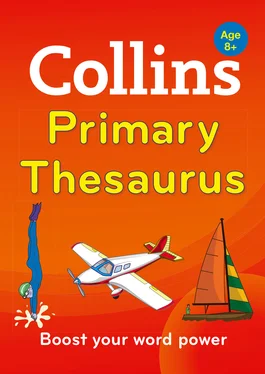
 If there are more than two things, you should use among(st). If there are only two things, you should use between.
If there are more than two things, you should use among(st). If there are only two things, you should use between.